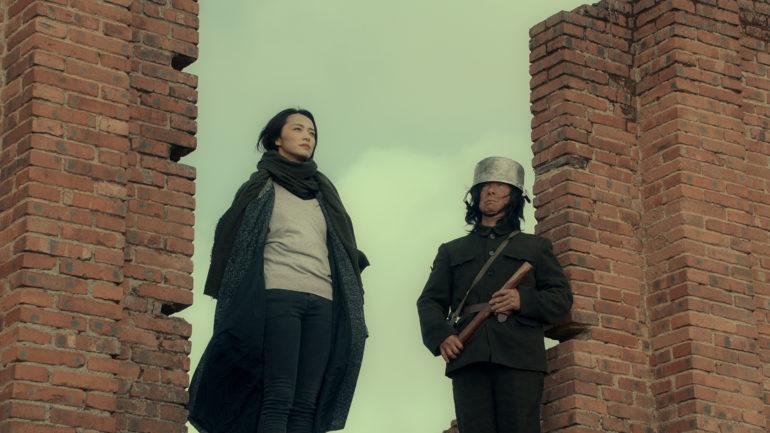‘Clouds’ Director Teng Congcong on Being a Conservative Chinese Feminist
By Rebecca Davis
LOS ANGELES (Variety.com) – As hot money flees the China film market and financing dries up, the romantic film genre will actually become more attractive for investors, assesses Teng Congcong, director of the recent Chinese romantic drama “.”
“Things used to be moving in the direction of big budget blockbusters, but the financing that’s leftover these days is more rational. People will be more drawn to projects where the investment requirements aren’t perhaps so high, but the returns are nonetheless stable.”
Her film, her first feature, was made on a budget of $1.4 million (RMB10 million). Fresh off four Golden Rooster Award nominations and one best supporting actress win, “Clouds” will be hitting Amazon Prime streaming on Dec. 20.
Coincidentally, the movie stars this year’s Golden Rooster Award ambassador Yao Chen, who is sometimes called China’s Angelina Jolie. The film tells the story of a young journalist who rethinks family, life and love after she discovers she has ovarian cancer.
Beijing Film Academy graduate Teng, 34, is already planning for her next film, a realist black comedy centered on a traditional Chinese funeral, which she hopes to start shooting in 2021.
The Chinese market has historically gravitated towards martial arts films and comedies featuring middle-aged men, with very few films either centered on women or intended for a female audience, she said. It’s only in the past few years that more realist films have begun to develop a foothold.
“I was drawn to my topic because the existing Chinese films about women’s issues are a bit narrow, and are mostly about rural women in the countryside or older women of nanny age. There aren’t a lot of stories about modern, urban women facing the confusion of their everyday lives,” she said.
“I don’t think romantic films have been well executed enough in the Chinese market. It’s not that there’s not enough of an audience for this type of film, it’s that there are very few works that are down-to-earth, where the story feels very real and relatable,” she said. “It’s an area we can really develop and improve.”
Teng considers herself a feminist, but at the same time expresses a more conservative take on the gender binary, believing that certain jobs and topics are still more suited to one sex or the other.
Gender equality is “very important,” she asserts, especially when it comes to actor salaries. “But when it comes to female directors, I don’t think requiring 50% of directors to be women is a very scientific way of approaching the matter,” she said, when asked her thoughts on initiatives that have taken off in the U.S. and Europe such as the 50/50 by 2020 movement to increase female representation at international film festivals.
“I think that men and women each naturally have things that they like and gravitate toward,” she said. “Being a director is still something that’s physically strenuous and requires leadership. Many women can choose to enter this profession, and we shouldn’t discriminate against them. If many women don’t wish to enter this profession, we have no need to push them and say they must.”
She added: “Do we ask for 50% of the police for to be female? Do we say that male nurses should make up 50% of the profession?”
But her film is a treatise, she says, on the importance of respect for everyone, irrespective of gender or life path. In a country where a governmental women’s agency actually coined the term “leftover women” to shame those past the age of 28 who remain unwed, and where having children remains a paramount familial responsibility, “we need to we need to respect women like [main character] Sheng Nan who want to be independent and doesn’t want to feel discriminated against for not having gotten married,” said Teng. Another male main character also faces stigma because he hasn’t achieved career success.
Teng says she is content making her movies for the China market. And, like many fellow young Chinese filmmakers these days, she doesn’t dream of crossing over to Hollywood.
“Modern China developed so quickly that there are loads of every day stories that are hilarious, fascinating, real and touching. This era of rapid development is a gift to us creators,” she said. “With such a wonderful gift of material to delve into, there’s no need to cast that aside, to cast aside your roots, to go and try to make it in overseas markets that are already very developed and have nothing to do with your culture.”

